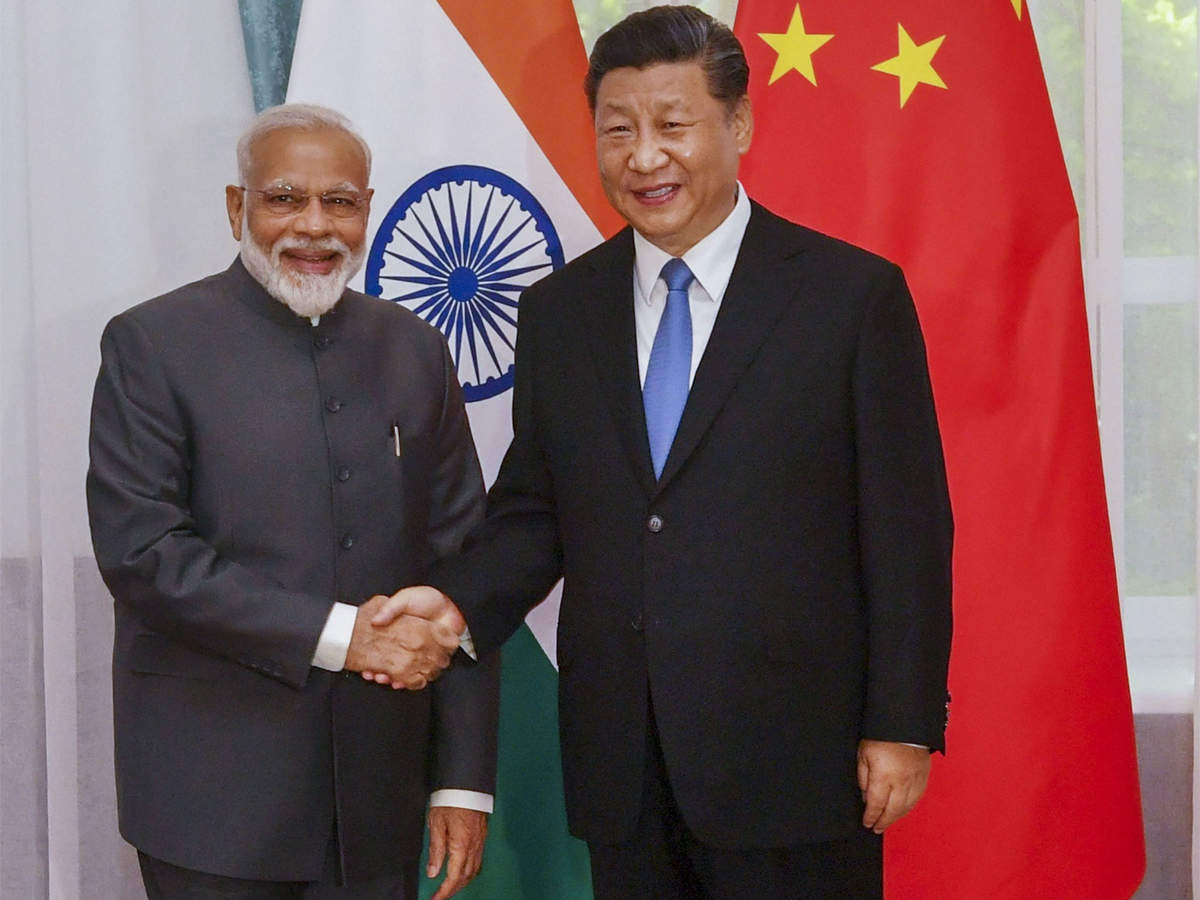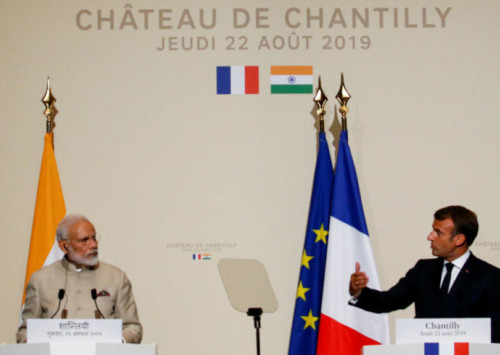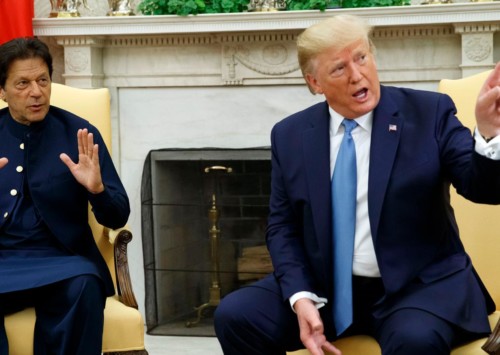Modi, Xi Jinping to meet for informal summit
The second informal summit between Prime Minister Narendra Modi and Chinese President Xi Jinping is an opportunity to strengthen the bilateral relationship.
Disagreements do not degenerate into disputes. Differences are the signs of mutual understanding and a mature relationship. Meaningful and informal dialogues are the means to engage in pathfinding. That is the mantra that seems to have inspired the practice of informal summit nurtured by Prime Minister Narendra Modi and President Xi Jinping for more than five years now. It represents the legacy of ancient civilisations that the two leaders hail from.
The timing and location of the summit, beginning tomorrow at Mamallapuram near Chennai, could not have been more appropriate. Modi is fresh from a stronger mandate for his second term given by 1.35 billion people of India while Jinping received a near-unanimous approval last year by nearly 3,000 political members in National People’s Congress (NPC) representing 1.42 billion people of China in favour of President Xi’s continued presidentship beyond 2023. Both the mandates mark historical milestones in the political history of the world.
The site of the summit, Mamallapuram, is symbolic as the ancient port town was part of the Pallava Empire that had ruled peninsular India for 600 years starting in the third century AD. At the peak of their power, the Pallava Kings had given military assistance to Chinese kings of the period to allow them to face off Tibetan kings who were extremely powerful at the time and were constantly threatening China.
Today, both China and India are considered rising powers – politically, economically and strategically. The leaders of giant economies, China ranking the second and India seventh, are sending a message to the world that bilateralism is not necessarily opposed to multilateralism. Healthy shades of bilateral dialogues have power to foster multilateral diplomacy on the strength of the political leaderships and people’s mandate. As Otto von Bismarck, the first German Chancellor, had famously remarked, “Politics is the art of the possible, the attainable-the art of the next best.”
That was in the 19th century when the world was passing through turbulent times that to many have seemed hopeless. Today, again, the globalised world is drenched with the terror wars, trade battles and territorial disputes. Prospect and promise of the better days seems to be illusive and distant. Shades of hopelessness are so evident in dealing with formidable challenges of climate change and inequality, that the world seems resigned to fatalism.
One of the biggest and near-impossible challenges facing the world today is climate change and preservation of environment. Here comes the duo of Modi and Jinping with the ‘next best hope’. Hailing from civilisations that for over 5,000 years have propounded respect for nature. Modi has said that “exploitation of nature is not acceptable to us”. Xi Jinping was equally emphatic in calling for “ecological civilisation reforms” to account for the environmental repercussions on China’s development. That stands out considering that the developed countries, who are deep into the mindless consumerism and shameless materialism, are entangled in an environmental and social crisis that seems to be unsurmountable. While both China and India showcase the path ahead by aggressively adopting renewable energy and focusing on conservation as well as conversation, to overcome any hurdles.
Modi and Xi are perched for the disruptive diplomacy of 21st century in terms of the informal summit. Stringent anti-corruption policies with exemplary personal characters of self-less leadership are the strengths of the duo that herald the new era of hopes to achieve progress, with equality as the most fundamental feature of development. Their informal meetings since 2014 have propelled the promise of disruptive diplomacy to address the defining challenges of our times, including climate change and terrorism.
The world has witnessed the disruptive diplomacy since cold war. In 1971, the so-called ‘ping-pong-diplomacy’ triggered by exchange of table tennis players from the US and China. The initiative was then seized by chairman Mao and the US secretary of the State, Henry Kissinger, who together transformed the relation between China and the United States. The subsequent ‘shuttle-diplomacy’ initiated by the same untiring Kissinger opened up new vista for the final peace deal between Palestine-Israel peace deal. The ‘Olympic diplomacy’ that kicked off in 2018 with the joint participation in the winter Olympic games by two Koreas opened the path of dialogue across the 38th parallel. The world also witnessed, again in 2018, another scene of witty and comic diplomacy, which media called it ‘dandruff diplomacy’ that clearly amplified the body language of the US President Donald Trump and French President Emmanuel Macron while dealing with a strong disagreement on climate change. Macron’s words, ‘let us make the planet great again’ gained global attention. Trump jokingly brushed aside a piece of dandruff on Macron’s suite, in front of reporters. It showed Trump’s appreciation of Macron’s steadfast and positive criticism and probably willingness to listen-a definite disruption in Trumpian tactics. The latest ‘cross border diplomacy’ of South Korean President Moon Jae-in and North Korean leader Kim Jong-un’s over 38th parallel between two Koreas has given further hopes of reducing the tensions.
Now comes a ‘chai diplomacy’ between Prime Minister Modi and President Xi. It began with a chat on a swing on the banks of river Sabarmati in Ahmedabad in 2014. This was followed by an informal summit in Wuhan on the banks of Yangtze river in April 2018 and now the third informal summit is taking place in an ancient port city highlighting historical ties between the two nations. Both Modi and Xi have shown the creative backdrops in selecting the places for the informal summits.
More than the backdrops, the frontal edifice of informal summits is carved with the two principles. First is the ‘let-us-attempt-problem-solving-together’. Second, one-to-one communication on the issues that are embarrassing to debate in the full view of the head-line seekers media.
The chessboard in front of the two leaders is a dense web of pawns and rooks. Hedging one against other is complex. Border defense, trade-deficit and tariffs, neighbours’ interests, Belt and Road initiative, climate change and terrorism. The list of challenges is long, their interlinkages are complex. But opportunities that are in front of the two leaders are catalytic and they could trigger the multilateral summits and global transformation.
Both leaders strongly believe in reforms as a response to the needs of a fast-changing world. Jinping holds that improving people’s livelihood and well-being is the primary goal of development Modi has a similar slogan of ‘Sabka Saath, Sabka Vikas’. ‘Eco-civilisation for the shared future’ is part of Jinping’s thoughts that are now getting mainstreamed in China. And Modi is known globally for spreading ‘Indian culture that cares for nature’. Both leaders also strongly believe in the potential of the strong institutions like Asian Infrastructure Investment Bank (AIIB), deployment of renewable energy, decarbonization of the economy and lifting millions of poor out of poverty and on the road to prosperity.
Surely, like earlier summits, there may not be official communique, but the world would be watching closely the two Asian giants that account for nearly 40 pc of the global population. The centre of gravity of global stewardship has certainly shifted eastwards significantly in the past few decades. The trend will continue for the foreseeable future and the world will be witnessing formal transformation through informal dialogue.
(Rajendra Shende is a former director of UNEP and currently chairman of Terre Policy Centre and advisor Media India Group)













